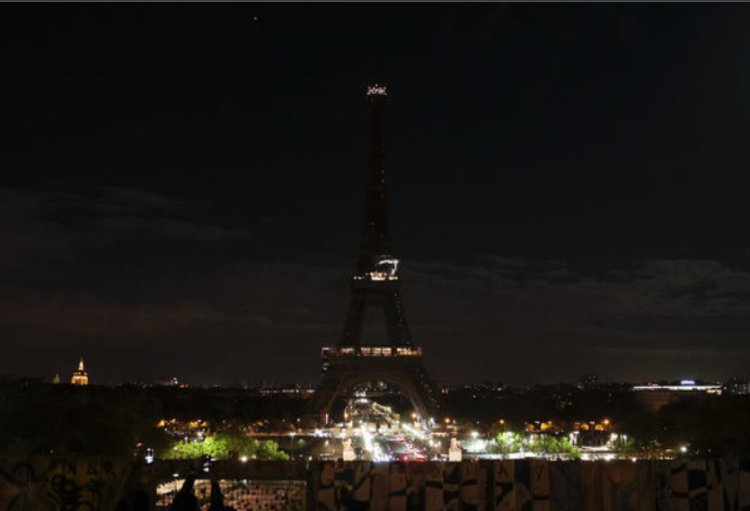'Dark Times' Ahead for the Eiffel Tower
Every night, the Eiffel Tower illuminates the night sky of Paris, enthralling the crowds who gather to see the more than 1,000-foot tower gleam in the moonlight. But, in the midst of the continent's hottest summer on record, the worst energy crisis since the 1970s has struck, and the iconic monument is now going dark early.

The plan was announced by Paris Mayor, on Tuesday, who stated that the city hopes to save 10% of its energy consumption during the winter. As part of the plan, all municipal buildings in the city will turn off their lights at 10 p.m., though public lighting will remain on for safety.
Beginning on Sept. 21, the Eiffel Tower, which is usually illuminated in golden hues within less than 10 minutes of nightfall and has an hourly 5-minute show of dazzling sparkles until 1 a.m., will have its lights turned off beginning at 11:45 p.m. when visiting time has ended. The nightly golden illumination makes up about 4% of the monument's annual energy expenses, according to its website.
Furthermore, the city will reduce the temperature in public buildings from 19 degrees Celsius (66.2 degrees Fahrenheit) to 18 degrees Celsius (64.4 degrees Fahrenheit), excluding those serving vulnerable populations, such as nurseries and nursing homes, and heating in administrative buildings, excluding social housing, will be delayed by one month. Swimming pools will be a degree cooler as well.
In addition, according to the city, hot water will no longer be available in some public and administrative facilities, again excluding those that provide services to vulnerable populations.
Major Parisian customers, such as large-scale landlords, hotel chains, supermarkets, department shops, and enterprises, will also be urged to limit their winter energy use by 10%.
The city remarked that the announcement came as Europe is reportedly going through its biggest energy crisis since the 1970s. The city reported that energy costs at the end of August were €1,000 MWh, which is 12 times more than the price observed at the same time last year.
 The Arc de Triomphe at the Center of Paris PHOTO FILE.
The Arc de Triomphe at the Center of Paris PHOTO FILE.
French Prime Minister Elisabeth Borne announced at the end of August that companies in the country would be required to develop energy-saving plans by the end of September, as concerns about power shortages and sharp price increases arose as a result of the Ukraine war. And, at the beginning of the month, French President Emmanuel Macron called for the country to reduce its energy consumption by 10% in order to avoid energy rationing and cuts during the winter.
On Wednesday, the European Union is also expected to announce new measures to reduce gas and power costs. The planned announcement follows Russia's announcement earlier this month that it would not reopen the main Nord Stream 1 gas pipeline, which is a vital source of energy for European nations.
All of this occurred during Europe's hottest summer on record. Months of extreme heat, drought, and wildfires plagued the continent, each amplifying the other. According to a report released last week by Europe's climate observation service, recorded temperatures from June to August were 0.4 degrees Celsius higher than in 2021, with August being the hottest on record.

 Steve Mburu
Steve Mburu 

























